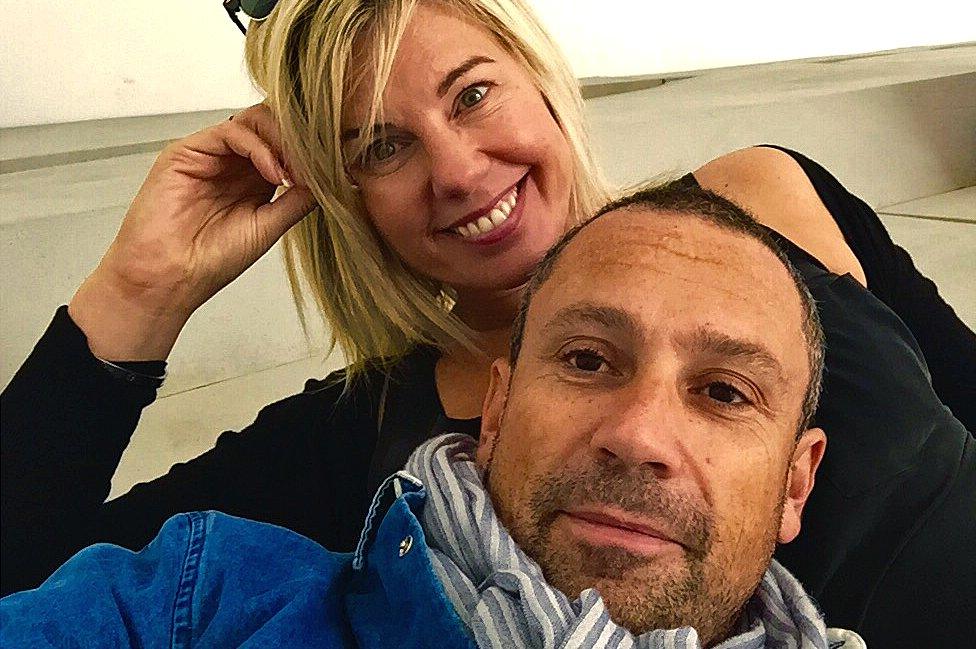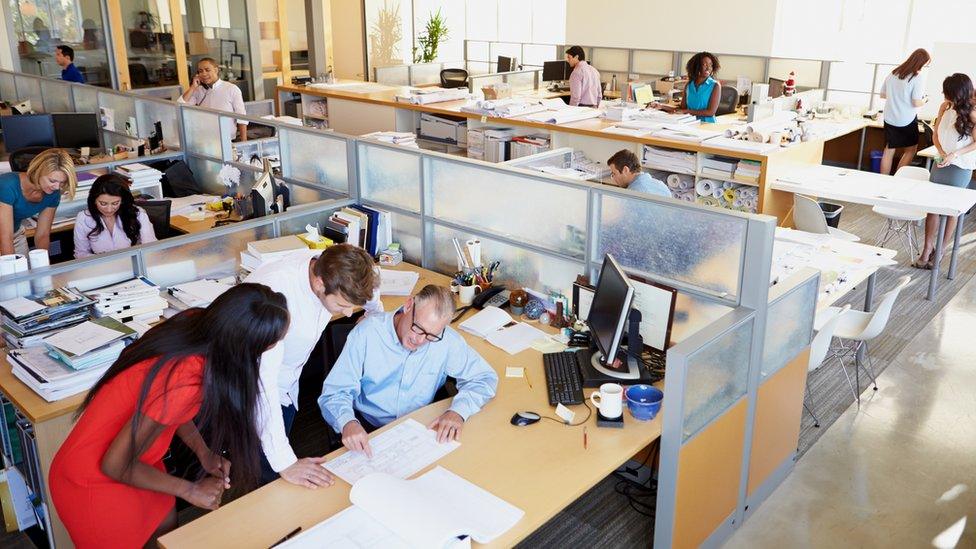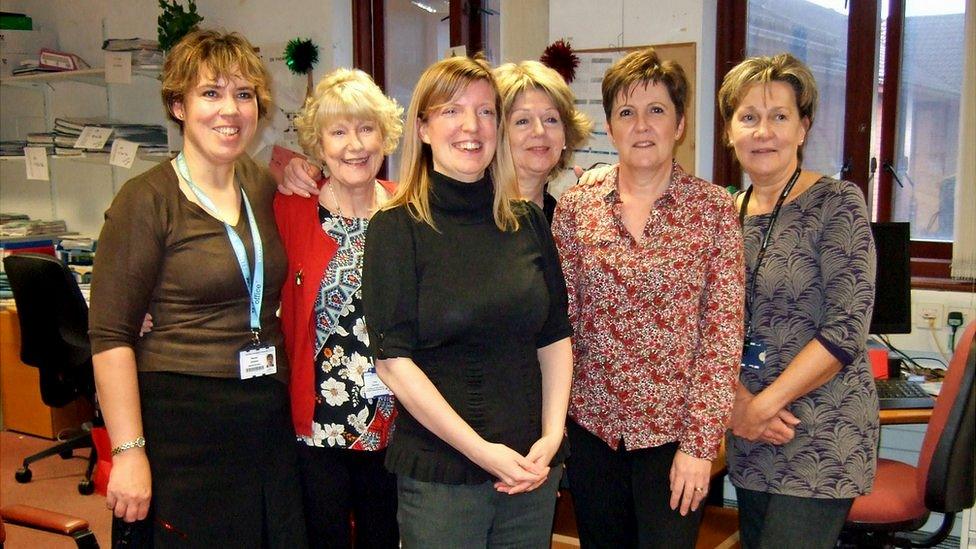Should you socialise with your colleagues outside work?
- Published

Enemies no longer: Phil and Caroline have since ironed out their differences
How do you relate to the people you work with? As friends you might go out for a meal with, or more as acquaintances you have to put up with in the workplace to get the job done?
Management consultant Phil Dibbs says he found it impossible to get on with one of his co-workers when they both worked for Westland Helicopters.
"Caroline was in procurement and I was working in sales, selling the helicopters to the Ministry of Defence. We should have collaborated but we hated each other, absolutely hated each other," he says.
"We did not work together very well at all. We had to get our assistants to talk to each other to get things done - otherwise discussions would go on well after it was time to go home.
"She thought I was arrogant. I thought she was aloof and standoffish - but gorgeous."
The two never considered meeting outside work at that point, says Phil, but later on a friend engineered a drink in a bar in York - and they revised their opinions of each other.

Phil and Caroline have now been a couple for 14 years
"At that point there was no romantic interest, but it grew from there," says Phil. And their socialising outside of work was definitely more fruitful than their initial working relationship.
"We got married in Las Vegas and have now been together for 14 years!"
Phil and Caroline's experience shows that life outside of work can be very different from the "nine-to-five".
And their experience is not unusual. One in five of us (22%) have met our partner at work, according to a YouGov poll for the TUC,, external while a third of us have had a relationship with a colleague at some point.
Yet while some of us may thrive in the office social scene, others prefer to keep their work and personal lives separate.

Some people would rather not go to those after-work drinks
IT consultant Peter Smith says though he gets on well with his co-workers, he does not meet them outside the office. "I spend 10-12 hours with the same people, why would I want to then go out with them in the evening?
"I need to be able to relax and unwind and I can't really do that with people from the office. I don't want to talk about work issues," he says.
"I have friends I see at the weekends and evenings, and my work colleagues who I might go for a quick lunch with, but I try to make sure the two groups don't meet."
But no matter how much we might try to compartmentalise our lives, some workplace events - like Christmas parties or leaving drinks - can be hard to avoid.
If you never go to any of them, your colleagues may wonder if you're rejecting them and then you might be seen as not one of the team, which could be counter-productive.

Talking about that latest work project or the weekend football results can all boost productivity, say researchers
Indeed, talking to your colleagues may help your work rate. A study by Massachusetts Institute of Technology, external (MIT) researchers found that workplace chatter, even the idle kind, can increase productivity.
The researchers fitted volunteers with badges containing radio transmitters and microphones, to monitor workers' interactions and see whether they were work or non-work related.
They found that those who interacted most with their co-workers had the highest productivity - whether or not they were talking about work or sport.
Adele Harman, a medical PA with the NHS, says that having previously worked alone, when she joined a team of about 20 she initially resisted socialising. "But then you realise you need the moral support - and this gives you confidence, it leads to a more productive office," she says.

Adele Harman (centre) says she gets a lot of support from her colleagues
Sasanka Sharma, founder and chief executive of US engineering and IT firm Iscientia, says he makes a point of meeting his team outside work.
"Every now and then we have activities planned for the whole team, be it lunch together, outdoor adventure, or just going out as a team after work hours. This builds our relationship, helps me know my employees on a personal level and helps them know me as well."
For him, as a company boss, there is also a commercial pay-off. "In today's environment it is hard to retain employees and colleagues unless they have an emotional connection to the company," he says.
"I would want my employees to be more connected and have a sense of ownership and that can only happen when people work as a team and as one family."

Sasanka Sharma regularly plans social events to give his employees "a sense of ownership"
However, it is important to be clear that what happens at work gatherings can never be truly separated from the office - so you need to bear this in mind.
If you're in a bar with your boss, no matter how informal things seem, you need to remember they are still your boss, so don't say anything to them that you wouldn't normally say in the office - something that may be harder to remember after a few drinks.
While getting a reputation for always being in the pub after work may be something to be avoided, we are social animals and developing links and friendships with co-workers can be useful.
These links can help you to find out what's really going on in your workplace, which may help you in your career.
When it comes to after-hours socialising, Phil Dibbs says you don't have to become your co-workers' best friend - but in terms of smoothing your own path at work "it does help if you get to know them in the round".
Something that certainly worked for Phil and Caroline.
- Published7 December 2016
